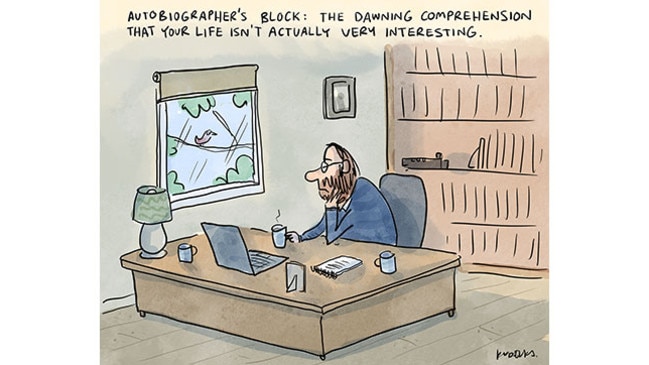Hillbilly Elegy by JD Vance: memoir as a work of literature
The best memoirs take you as deeply into the personality of another human as a novel.

Biographies or novels, which do you prefer? Biographies have the advantage that they are dealing with real people and with events that actually happened. Their disadvantage is they cannot penetrate the subjective realms where novels do their best work, the most intimate truths of the human heart.
The best subjects are those who kept extensive diaries and wrote a lot of letters. A form I’ve grown to like more and more is the memoir. The best take you as deeply into the personality of another human as a novel, with the benefit of reflecting reality. I still consider Israeli novelist Amoz Oz’s A Tale of Love and Darkness perhaps the finest book of any kind I’ve encountered. The best Australian memoir I’ve read is Richard Glover’s Flesh Wounds.
Here’s a new one for the list. JD Vance’s Hillbilly Elegy is something extraordinary. It is a personal memoir of quite brilliant composition that is shaped to a political purpose, liberally spiced with jokes, and yet wrenchingly sincere and dealing with the hardest truths of life — parental betrayal, drug addiction, domestic abuse, enduring family love, cultural despair and, amid it all, hope and redemption.
The memoir form offers great flexibility without loss of coherence. Almost all memoirists tell you a story in an accessible fashion. Many dramatise events, write whole episodes as though they were novels. Vance doesn’t do that. He employs no authorial voice tricks, no time suspensions, no overtly artful film-style visual settings — which Barack Obama did to great effect in Dreams of My Father — and yet his tale is compelling. He tells of the terrible cultural dislocation of his clan, the hillbillies of the American south. But this is not Angela’s Ashes. And he doesn’t hate his relatives — he loves them. He loves the good in them, the patriotism, the religion, the loyalty to their clan.
Their cultural decline is partly economic. They moved to the city for low-skill but regular jobs, they got the jobs and a taste of the American dream, and then the jobs disappeared and they were stranded far from home. And the broad culture moved away from them. They had no heroes. Cynicism, despair and drugs took over. But Vance survives. In the end he goes to Yale and becomes hugely successful. Four things saved him — his grandparents, his sister, religion and finally the Marine Corps.
The real hero of the book is his grandmother, who put up with her own share of abuse from her husband, who later repented and became a pretty good grandfather in his way. Vance’s cussing, foul-mouthed, Bible-toting, impoverished, iron-willed, generous, tough-as-nails grandmother offered him refuge from his mother’s wild, depressing and crushing drug addiction and her endless series of male partners, some of them OK enough, some of them creeps.
Vance’s childhood was filled with violence, disorder and disruption. Finally he moved in permanently with his grandmother who, though on good terms with her husband, lived alone. Vance recalls: “There were three rules in her house: Get good grades, get a job and get off your ass and help me.”
One strength of this book is the way it effortlessly threads public policy into the story. Vance has read deeply about the predicament of his hillbilly community and about the effect of family disorder on kids and much else. He is taken with the concept of the “resilient child”. Even if there is one good adult to help a kid through, the kid has a real chance of making it OK. Without idealising the past, Vance describes the generational changes in two types of working-class culture: “My grandparents embodied one type: old fashioned, quietly faithful, self-reliant, hardworking. My mother, and increasingly the entire neighbourhood, embodied another: consumerist, isolated, angry, distrustful.”
Another element of genius is how much humour he manages, much of it self-deprecating, though for most of the book Vance is a kid afflicted by some very disturbed adults. And finally, as with any really good work of art, there is the underlying sense of consolation and hope, indeed of forgiveness. Hillbilly Elegy has been rightly noted for its political insights. I recommend it to you entirely as a work of literature.




To join the conversation, please log in. Don't have an account? Register
Join the conversation, you are commenting as Logout